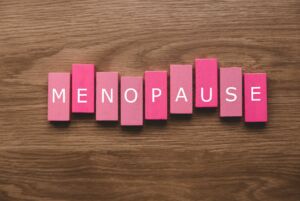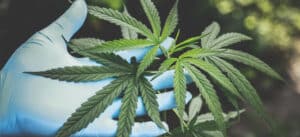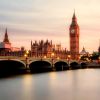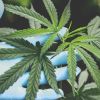Can CBD Cause Psychosis? Debunking Myths and Examining Evidence
CBD, or cannabidiol, is a natural compound derived from the hemp plant that has been gaining popularity for its potential health benefits. However, some concerns have been raised about its possible connection to psychosis. In this article, we’ll examine the evidence and debunk some common myths about CBD and its relationship to psychosis.
CBD does not cause psychosis.
Firstly, it’s important to understand what we mean by psychosis. Psychosis is a mental health condition characterized by a loss of touch with reality. It can include symptoms such as delusions, hallucinations and disordered thinking. While there is some evidence to suggest that THC, a compound found in the cannabis plant, can cause psychosis, the evidence surrounding CBD is less clear.
CBD is generally considered safe and well-tolerated. The World Health Organization has stated that “CBD is generally well tolerated with a good safety profile.”
CBD oils such as those produced by Charlotte’s Web are typically made by extracting a full spectrum CBD extract derived from the flower from the hemp plant and diluting it with a carrier oil such as organic olive oil or organic fractionated coconut oil (MCT). These products can come in a variety of forms, such as oils and tinctures, as well as edibles such as gummies or capsules.
It’s important to note even though we stock Full-Spectrum CBD products, they only contain small trace elements of THC, and will not get you “high” or cause psychosis.
As with all food supplements, it’s important that you consult your healthcare professional with regard to any changes in your diet, or concerns over potential interactions between CBD and medication. You can also ask one of our CBD experts for advice and guidance on how CBD can benefit you.
CBD is a non-psychoactive compound found in hemp.
CBD has been widely studied for its wellness properties without causing any adverse side effects. While it is a component of the hemp plant, it does not produce the psychoactive effects associated with marijuana use.
It’s important to understand the difference between CBD and THC. THC is responsible for the “high” associated with marijuana use, while CBD does not produce this effect.
The reason for this difference lies in how THC and CBD interact with the body’s endocannabinoid system. The endocannabinoid system is a complex network of receptors and signalling molecules that play a role in regulating many physiological processes, including pain sensation, appetite, and mood.
THC binds directly to the CB1 receptor, which is found primarily in the brain and central nervous system. This produces the psychoactive effects associated with marijuana use. CBD, on the other hand, does not bind directly to the CB1 receptor. Instead, it works by modulating the activity of other signalling molecules in the endocannabinoid system.
One way that CBD does this is by inhibiting the activity of an enzyme called FAAH, which breaks down anandamide, an endocannabinoid that plays a role in regulating mood and pain sensation. By inhibiting FAAH, CBD can increase the levels of anandamide in the body, which can produce a sense of relaxation and well-being.
Additionally, CBD has been shown to interact with other receptors and signalling pathways in the body, including serotonin receptors and TRPV1 receptors.
Is CBD safe to consume?
The short answer is yes, CBD is generally considered safe for most people.
One reason for this is that CBD is non-intoxicating and does not produce the psychoactive effects associated with marijuana use. In fact, a review of clinical trials and preclinical studies on the safety of CBD found that it has a favourable safety profile, However, as with any supplement or medication, there is always a risk of adverse reactions or interactions with other medications, so it’s important to speak with your healthcare provider before starting to use CBD.
When it comes to CBD products, it’s important to choose a high-quality product from a reputable manufacturer such as our carefully curated range of products from Charlotte’s Web or our delicious own range of CBD goodness at Savage Cabbage. When purchasing CBD products, make sure that you check and verify the associated lab reports, you can find ours here.
It’s also important to follow the dosing instructions on the product label. Starting with a lower dose and gradually increasing it as needed can help you find the optimal dose for your individual needs. You can find our beginners guide here in our blog, which will help you through getting to grips with CBD.
In addition, it’s important to store CBD products properly. Store them in a cool, dry place away from direct sunlight, and keep them out of reach of children and pets. CBD oils are very light sensitive, so to keep yours in the best condition try to avoid storing it in direct sunlight.
Finally, it’s important to be aware of the legal status of CBD in your area. While CBD is legal in many countries, including the UK there are still some areas where it is not legal or where it is only legal for medical use. We’ve prepared a great guide on where CBD is completely legal and places to avoid taking CBD products. CLICK HERE FOR OUR GUIDE TO WHERE CBD IS LEGAL.
Conclusion
CBD is a safe and effective supplement for treating many types of mental health issues. It can help with anxiety, depression, and even psychosis. The best part about CBD is that it doesn’t cause any side effects or withdrawal symptoms when taken in moderation. Suppose you want to learn more about how CBD works as an alternative treatment option for these conditions. In that case, we encourage you to speak with your doctor or healthcare provider before starting any new regimen.













